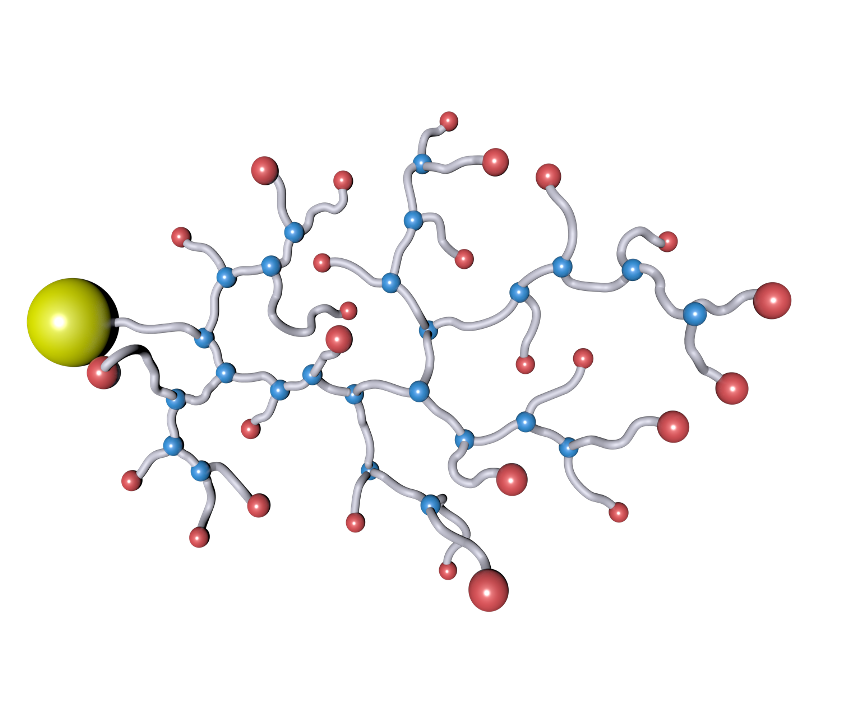Polymers in Medical Care: Improving Clinical Devices and Treatments
Polymers in Medical Care: Improving Clinical Devices and Treatments
Blog Article
Discovering the Varied Applications and Benefits of Polymers in Different Industries
Polymers, with their varied variety of buildings and capabilities, have come to be vital in numerous sectors, each reaping unique advantages from their application. From improving safety and security and performance in the automobile market to transforming clinical gadgets in the medical care sector, polymers play a pivotal function.
Automotive Sector Applications
Polymers play a critical role in improving the efficiency and longevity of different components within the automotive sector. One prominent usage of polymers in the automotive industry is in the manufacturing of lightweight elements.

Medical Care Sector Benefits
In various medical care applications, the advantages of using polymers are commonly acknowledged for their varied variety of valuable buildings. Polymers play a critical role in the health care market as a result of their versatility, biocompatibility, and cost-effectiveness. One of the primary benefits of polymers in healthcare is their capacity to be customized to details demands, such as flexibility, durability, and biodegradability, making them perfect for a vast array of medical applications.
Polymer-based materials are extensively used in clinical gadgets, such as catheters, implants, prosthetics, and drug shipment systems, because of their biocompatibility and ability to resemble all-natural cells. These products can decrease the danger of allergic responses or denials, boosting person security and results. Additionally, polymers are lightweight, making them suitable for wearable clinical tools and ensuring person comfort.
Additionally, polymers make it possible for the growth of innovative treatment techniques, such as hydrogels for tissue engineering and nanocomposites for targeted medication shipment. Their simplicity of handling and sanitation makes them necessary for keeping high standards of hygiene in healthcare settings. On the whole, the varied advantages of polymers contribute considerably to developments in medical modern technology and individual care.
Environmental Benefits of Polymers

In addition, polymers can contribute to power cost savings due to their lightweight nature. In markets such as transport, lightweight polymer materials can assist lower fuel consumption and greenhouse gas exhausts. Furthermore, polymers can click for more make it possible for the advancement of energy-efficient items such as insulation products that improve power preservation in buildings.
In addition, polymers play a vital role in lowering water contamination. The use of polymer-based filtration systems can properly get rid of toxins and pollutants from wastewater, safeguarding water sources and ecological communities. In general, the environmental advantages of polymers make them valuable properties in advertising sustainability and environment-friendly techniques throughout numerous sectors.
Polymers in Electronic Devices and Technology
Considering the enhancing need for ingenious and sustainable options in modern markets, the combination of sophisticated polymer innovations in the world of electronic devices and technology has actually emerged as a pivotal method for driving effectiveness and performance. Polymers have revolutionized the electronics sector by making it possible for the production of lighter, a lot more versatile, and sturdy digital gadgets. From mobile phones to clinical tools, polymers play a vital role in enhancing product layout and performance.
One significant advantage of polymers in electronic devices is their shielding residential properties, which aid shield delicate electronic elements from ecological factors and electric disturbance. Furthermore, polymers are essential in the development of versatile displays, wearable this link modern technology, and published electronic devices, supplying countless opportunities for producing smart and interconnected gadgets.
Furthermore, making use of polymers in electronic packaging has actually led to innovations in miniaturization and thermal administration, enhancing the general efficiency and reliability of electronic systems. As technology continues to develop, the versatility and flexibility of polymers will undoubtedly drive even more technology in the electronic devices sector, shaping the future of innovation.
Function of Polymers in Building And Construction and Infrastructure
The combination of sophisticated polymer materials in building and framework jobs has changed the method frameworks are created and integrated in contemporary times. Polymers supply many benefits in the construction market due to their versatility, sturdiness, and cost-effectiveness. One crucial function of polymers in building is their use in finishings and sealants, offering security versus ecological elements such as dampness, UV radiation, and corrosion. In addition, polymers are made use of in the production of light-weight and high-strength composite materials, improving the structural integrity of buildings while minimizing general weight.
Moreover, polymers play a critical duty in sustainable building and construction practices by making it possible for the development of energy-efficient structures. Insulating materials made from polymers assist control interior temperature levels, reducing the demand for home heating and cooling systems and inevitably lowering energy consumption. Furthermore, using polymer-based composites in infrastructure jobs such as bridges and roads boosts their long life and lowers maintenance expenses. In general, the unification of polymers in building and framework displays their considerable impact on modern-day engineering practices.
Final Thought
Finally, polymers play an essential function in various markets such click over here now as automotive, medical care, environmental, electronic devices, and construction. Their functional residential properties make them valuable in producing cutting-edge services and products. From enhancing fuel performance in vehicles to improving clinical tools, polymers use numerous benefits. Additionally, their influence on minimizing waste and advertising sustainability highlights their significance in contemporary applications. The prevalent usage of polymers shows their substantial contribution to progressing innovation and enhancing lifestyle.
Report this page